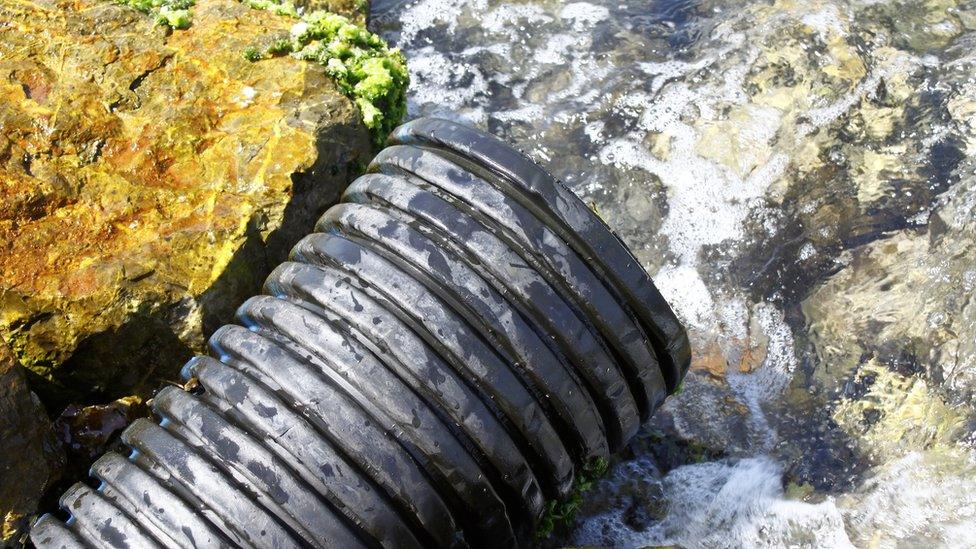Coronavirus: Newcastle University tracking virus in sewage
- Published

Non-infectious genetic residue can be found in waste water
Sewage is being monitored for traces of coronavirus in an attempt to identify outbreak hotspots.
Scientists can detect genetic residues in water, allowing them to estimate local concentrations of the virus.
Academics from Newcastle University and Santiago de Compostela in Spain are analysing samples taken from sewage in different locations.
The university said this would allow public health officials to predict the spread of the virus earlier.
Project co-leader David Graham said scientists had "limited" information about how widespread the virus was or whether it was affecting some communities more than others.
"Our work here is to develop local solutions, but also to assist global efforts, by developing tools for predicting spread at a much earlier stage," he said.
The research, which is being supported by Northumbrian Water and Labaqua in Spain, will not identify if specific people are infected.

A SIMPLE GUIDE: How do I protect myself?
AVOIDING CONTACT: The rules on self-isolation and exercise
TESTING: Can I get tested for coronavirus?
HOW A VIRUS SPREADS: An explanation


Follow BBC North East & Cumbria on Twitter, external, Facebook, external and Instagram, external. Send your story ideas to northeastandcumbria@bbc.co.uk, external.